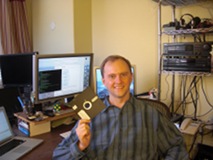I was surprised at the amount of attention attracted by my recent post,"Rapid DHCP: Or, how do Macs get on the network so fast?". Between the 27 comments on my post and the 180 comments on Hacker News, a lot of interesting insights surfaced about the Mac's approach to DHCP. Information that would have taken me a week or two to research arrived within hours from people with experience in these matters. Here are some of the highlights:
- The scheme Apple uses to achieve rapid network initialization is documented in RFC 4436: Detecting Network Attachment in IPv4 (DNAv4), which was authored by internet engineers from Apple, Sun, and Microsoft.
- The scheme also seems to be documented in Apple's patent application (pub. no.: US 2009/0006635 A1). A patent has not yet been granted at this time. No Intellectual Property Rights (IPR) disclosures have been filed with the IETF concerning RFC 4436.
- There's a minute chance for an address collision if the DHCP server loses its lease information after a reset. Such a collision should sort itself out quickly, but may cause a minor disruption to one or both of the hosts competing for the address. Many commodity routers may contain embedded DHCP servers that lose their lease information when the router is powered off. There is some debate over whether it is appropriate for implementors to risk this situation for a great speed benefit, or if they should take the strictly conservative route of accommodating such broken network scenarios.
- I can't say for certain, but it seems that this process occurs in user-space in Apple's bootp package. (Thanks to everyone for the pointers to Apple's open source code.)
- The DHCP server on my test network was not set up to be authoritative, so it wasn't prompting sending NAKs in response to bogus requests. Fixing this problem considerably improved the Galaxy Tab's DHCP time, although it (like many other devices) is still pokey compared to Apple's initialization scheme. (Added 2011-07-21.)
Thanks to everyone who joined in on the fun!
posted at 2011-07-17 20:38:54 US/Mountain
by David Simmons
tags: mac networking dhcp
permalink
comments

